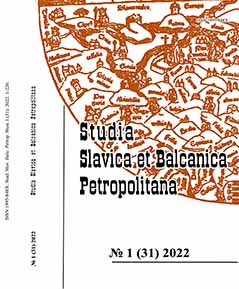Реценция на книгу: Aleksander Szklennik. «Wspomnienia o wydarzeniach w Wilnie i w kraju». Dziennik. Wstęp i opracowanie Joanna Gierowska-Kałłaur. Część I.
Review on: Aleksander Szklennik. «Wspomnienia o wydarzeniach w Wilnie i w kraju». Dziennik. Wstęp i opracowanie Joanna Gierowska-Kałłaur. Część I.
Author(s): Aleksandr Ivanovich RupasovSubject(s): Local History / Microhistory, Oral history, Social history, Book-Review
Published by: Издательство Исторического факультета СПбГУ
Keywords: Vilna; World War I; German occupation; population; interethnic relations; historiography; historical sources;
Summary/Abstract: Review of: Aleksander Szklennik. «Wspomnienia o wydarzeniach w Wilnie i w kraju». Dziennik. Wstęp i opracowanie Joanna Gierowska-Kałłaur. Część I. Warszawa: Instytut Historii PAN, 2018. 960 s. ISBN 978-83-65880-36-9; Część II. Warszawa: Instytut Historii PAN, 2019. 1067 s. ISBN 978-83-65880-77-2 / Morfozy społeczne. 18. A review of an edition of the diary of a prominent figure in the Vilna (Vilnius) cooperative Alexander Szklennik, which he began keeping a few months before the German occupation of the city and before the November Revolution in Germany. The manuscript of the diary was donated 15 years after the author’s death by his relatives to the Vilna Association of Friends of Science. Its publication was carried out by Dr Joanna Gierowska-Kałłaur. The published diary is the only such comprehensive and stunningly accurate picture at the disposal of historians of everyday life in Vilna during the German occupation. The picture of the real situation in Vilna and the Vilna region in 1915–1918 remained unclear for a long time, due to the one-sidedness of Polish historiography, the influence of German and Lithuanian historical politics and the myth of the foundation of the Belarusian People’s Republic. For Polish historiography, the most significant factor limiting the possibility of a reliable historical analysis of the situation in Vilna was the lack of access for Polish historians to the sources remaining in «archival dispersal» outside Poland. The diary’s text, replete with details of everyday life in the city and descriptions of political disagreements between the national communities (Poles, Lithuanians, Belarusians and Jews), makes it possible to recreate a comprehensive picture of life in the city during the occupation period.
Journal: Петербургские славянские и балканские исследования
- Issue Year: 2022
- Issue No: 1(31)
- Page Range: 211-216
- Page Count: 6
- Language: Russian

